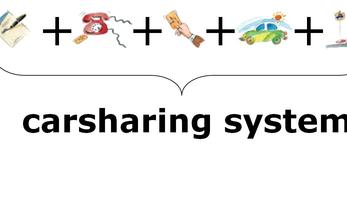Policy options for car sharing
Thematic areas
Active mobility
Collective passenger transport & shared mobility
- Ride sharing
- Car sharing
- Bike sharing
- Accessibility
- Intermodality
- Service improvements
Summary
The city of Krakow explored car sharing as a promising option for transport demand management in order to reduce the negative impacts of increased private car usage.
Implementing sustainable mobility
There will always be people whose mobility needs are not met by public transportation and who therefore opt to own their own car. In such cases, car sharing can be seen as an alternative or complementary option. As Krakow had no car-sharing system in place, a feasibility study was carried out to investigate the financial possibilities and identify potential user groups and business models, taking into account lessons learned in other European cities (Genoa, Bremen and London) and the results of the car-pooling scheme developed by the Technical University in Krakow.
At the time of implementation, awareness of the benefits of car sharing was very low in Krakow, although there was great market potential due to increasing parking problems, congestion and pollution.
Progress
The feasibility study analysed:
- the socioeconomic and political conditions for the introduction of car sharing;
- target groups and user requirements;
- marketing strategies;
- potential locations for car-sharing vehicles; and
- possible organisational plans for daily system operation.
A survey was simultaneously carried out to assess the level of knowledge of the term “car sharing” and the number of people who might be willing to use such a system if it were introduced in Krakow.
Outcomes
As a result of this measure, a car-sharing implementation and business study for Krakow was developed as a test case for Poland. The document was presented to the city authorities with the recommendation that a car-sharing system be developed as a new mode of transportation for the city.
Although only 11 percent of citizens were already familiar with the concept, 46 percent of respondents stated their readiness to participate in a possible scheme once the idea had been explained to them.








